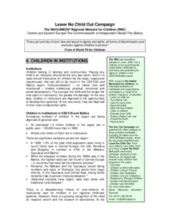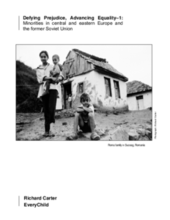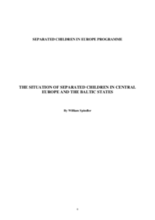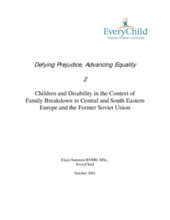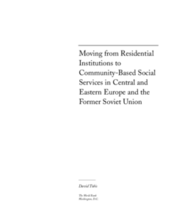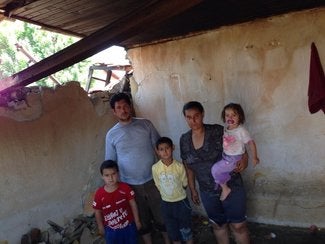

Displaying 521 - 527 of 527
This paper examines the negative impact of institutional care in central eastern Europe, the Commonwealth of Independent States and the Baltics region. It promotes community-based care alternatives and provides statistics. It also includes a list of useful resources addressing orphaned and vulnerable children.
Analyzes discrimination against minorities in Central and Eastern Europe and the former Soviet Union. Suggests projects to counter discrimination and includes points for good practices in dealing with prejudice.
Outlines national efforts to disarm, demobilize, and reintegrate former child soldiers with respect to specific political contexts. Includes lessons learned, future challenges, and recommendations.
This report reviews childcare policy for separated children in the Central Europe and the Balkan States. It emphasizes the need to establish training, resources and effective procedures in order to meet the standards outlined in the Statement of Good Practice. Data from Bulgaria, Croatia, the Czech Republic, Estonia, Hungary, Latvia, Lithuania, Poland, Romania, Slovakia and Slovenia is presented.
A study on children with disabilities in the context of family breakdown. Includes overviews and statistics from 10 countries, a call for strengthened family support services, and draft guidelines on how child agencies can better mainstream these issues into their work.
A paper describing a study that reviewed the role of institutional care in Albania, Armenia, Latvia, Lithuiania and Romania, where the World Bank worked to develop community based care social services and move away from large residential institutions that according to the paper have deleterious affects on the nations and on the people who live in them. Particularly, the study focuses on the use of residential institutions by children, people with disabilities and the frail and isolated elderly.
This evaluation study examined a Family Services Centre (FSC) operating in a socio‐culturally deprived suburban area of Southern Italy to explore how promoting innovative practices to meet increasingly complex family needs.

